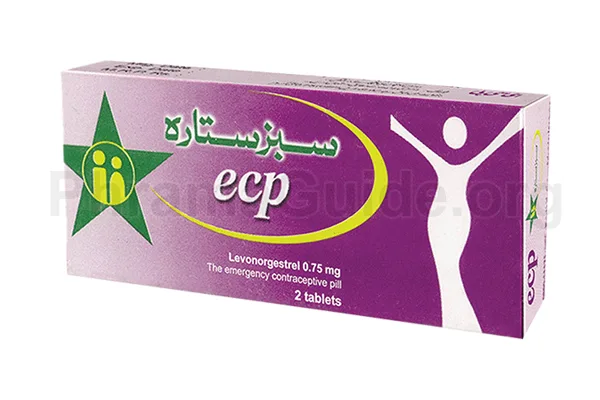ECP is a synthetic form of the hormone progesterone, commonly used in emergency contraception (commonly known as the morning-after pill or Plan B) and in some hormonal birth control methods like intrauterine devices (IUDs) and contraceptive pills. Common and less common side effects of ECP, particularly when used as emergency contraception, may include:
Common Side Effects
- Nausea and Vomiting: One of the most reported side effects of ECP is nausea, which can sometimes lead to vomiting. Taking the pill with food or at bedtime can help reduce these symptoms.
- Fatigue: Some individuals might experience tiredness or fatigue after taking ECP.
- Abdominal Pain or Cramps: Mild abdominal discomfort or menstrual-like cramps might occur as a side effect, which usually subsides within a few days.
- Headaches: Some people may experience headaches as a result of taking ECP.
- Irregular Menstrual Bleeding: ECP can cause changes in menstrual bleeding patterns, such as earlier or later periods, spotting, or heavier or lighter bleeding than usual. These changes usually resolve within the next menstrual cycle.
- Breast Tenderness: Some individuals might experience mild breast tenderness or changes in breast sensation.
- Dizziness: In some cases, ECP might cause dizziness or lightheadedness.
Less Common Side Effects
- Mood Changes: Some individuals may experience changes in mood, such as increased irritability, anxiety, or changes in libido (sex drive).
- Menstrual Irregularities: While changes in menstrual bleeding are a common side effect, less frequently, ECP might cause more significant alterations in menstrual cycles, including prolonged or heavier bleeding, or absence of menstruation until the next cycle.
- Allergic Reactions: Rarely, some individuals might experience allergic reactions to ECP, presenting as rash, itching, swelling, or difficulty breathing. Seek immediate medical attention if these symptoms occur.
- Abdominal or Pelvic Pain: In rare cases, ECP can cause severe abdominal or pelvic pain. If this occurs after taking the medication, it’s essential to consult a healthcare professional.
- Vaginal Discharge or Irritation: Some individuals might experience vaginal discharge changes or irritation as a less common side effect.
- Changes in Weight: While not commonly reported, some individuals may experience slight weight changes while using ECP-based contraceptives.
- Acne or Skin Changes: ECP might occasionally lead to changes in skin condition, including acne or oily skin.

What is ECP?
ECP is one of the leading brands of Levonorgestrel, manufactured and marketed by Social Marketing Pakistan (Guarantee) Ltd.
ECP : Available Formulations and Strengths
Presently, ECP is available in Tablet Form with the following strength.
ECP Tablet : 0.75mg strength.
What Are The Possible Drug Interactions of ECP?
- Enzyme-Inducing Drugs: Medications that induce liver enzymes, such as some anticonvulsants (like phenytoin, and carbamazepine), certain antibiotics (like rifampin), and herbal supplements (like St. John’s Wort), may potentially reduce the effectiveness of ECP.
- HIV Medications: Some HIV medications, especially protease inhibitors and non-nucleoside reverse transcriptase inhibitors, might interact with ECP, potentially reducing its effectiveness. Alternative or additional contraceptive methods might be necessary in these cases.
- Antifungals: Certain antifungal medications, particularly griseofulvin, might reduce the effectiveness of ECP.
- Hepatitis C Medications: Some medications used to treat hepatitis C, like ombitasvir/paritaprevir/ritonavir/dasabuvir, might interact with ECP, potentially reducing its efficacy.
- Grapefruit Juice: Consumption of large amounts of grapefruit juice might affect the metabolism of ECP, but the clinical significance of this interaction is not well-established.

Leave A Comment